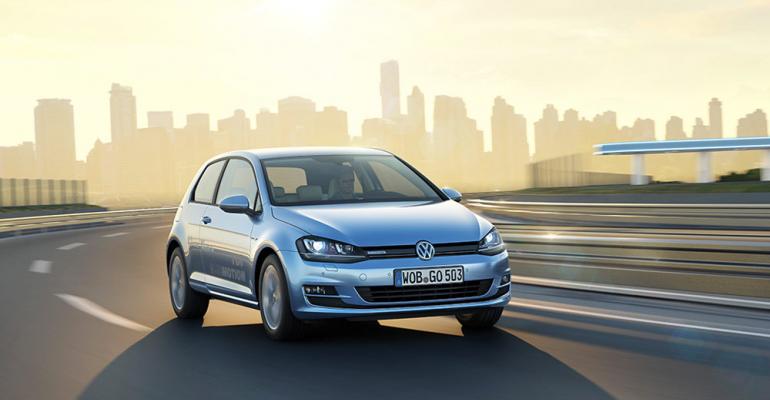ROCHESTER, MI – It’s probably no accident that as Volkswagen has granted more authority to its U.S. arm and begun listening to it more closely on product design, quality levels and sales volumes have improved markedly.
Those trends will continue, Marc Trahan, vice president-quality, tells WardsAuto Tuesdayin an interview here, as the parent company gets ready to roll out its newfound, less centralized product-development approach to other key markets around the world, including China, Russia and South America.
A little more than a year ago, VW launched the revamped process that gives a greater voice to its U.S. management in next-generation vehicle designs.
Every three months or so, Trahan and other top executives meet with management-board members at VW headquarters in Wolfsburg, Germany, or elsewhere to go over current new-vehicle program plans and present their wish list, which can range from small tweaks to upcoming and existing vehicles to much broader product initiatives.
“About 85% of our requests are honored,” Trahan says later the same day in a presentation to the Automotive Press Assn. in Detroit.
The U.S. arm also has been empowered to make running changes to vehicles built in North America for the local market. More than 75% of what the VW brand sells in the U.S. is produced locally or in Mexico.
“Now we resolve the issue and inform the parent about it later,” he says.
The move to more product differentiation among individual regions is not without risks, Trahan notes. For one, there’s the more complicated engineering process that could ensue as various markets weigh in with potentially competing demands. Plus, the more market-specific tweaks made, the more difficult it becomes to contain cost and retain quality.
“I understand the centralized philosophy,” Trahan says, “because not to have that can lead to inefficiencies and redundancies. The trick to making this approach successful will be to avoid that. But I think we can do it.
“We’re trying to find that balance, where we can make our own decisions with cost justifications and just report back to the parent what we’re doing – instead of asking for permission. We’re about midway to where I think we really should be, but we’re on our way there.”
VW’s decision to reel out a bit more line is firmly grounded. In the past four years, warranty claims have declined 47%, Trahan says, reaching their lowest level in history, as the U.S. arm has stepped up its quality-control effort and fine-tuned its vehicles more toward American tastes.
“We know from comparative data (our warranty claims are) now lower than some manufacturers you wouldn’t expect,” he says.
To zero in on quality issues, VW has begun surveying all buyers 30 days into ownership, using a format Trahan says is similar to the J.D. Power Initial Quality Survey. Response has been running as high as 25%, meaning for every 40,000 vehicles it sells in a month, it gets feedback from 10,000 owners.
“Bottom line, I think we do a really good job of monitoring, catching stuff early and really jumping on it,” he says. “If we see any issue that has occurred more than five times, we are on that. We are sending people into the field to talk to customers and look at the cars. We report it back to the factory.
“I’m confident now, with the processes we have in place and the trust of our parent organization in Germany, we can keep that low level of warranty claims.”
Still, market perception lags behind the internal data, Trahan admits.
“That perception’s justified,” he says, pointing to VW’s poor quality reputation of the past. “I understand all that, but the reality today is for sheer reliability, we are one of the best-performing brands.”
However, VW remains below industry average on Power’s IQS, though it has been trending upward.
Trahan expects to reach the industry average with next year’s survey results, and his longer-term goal is to position Volkswagen as the best non-premium brand and among the Top 10 overall. But he isn’t targeting the top spot, saying reducing warranty claims is a higher priority and a more telling barometer of overall product quality.
“I don’t want to chase No.1,” he says of the IQS study. “I think that’s foolish. It’s only the customer’s perception after 90 days. It’s important, but there are other facets of quality that have to be focused on as well. You don’t want (IQS) to be a distraction.”
Trahan has characterized this year’s U.S. performance, with VW sales down 1.3% year-to-date in a market that’s up 9.6%, as the brand “catching its breath” after years of double-digit growth.
“Next year,” he says in pinpointing when VW will regain its stride, pointing to the planned introduction of the new Golf and a facelifted Jetta due in 2014. “Product cadence is a difficult thing to manage. You can only do so much if you want to maintain quality.
“And we’re at this pause in terms of our product cadence. That’s the reality, but we’ll start to pick up steam.”





